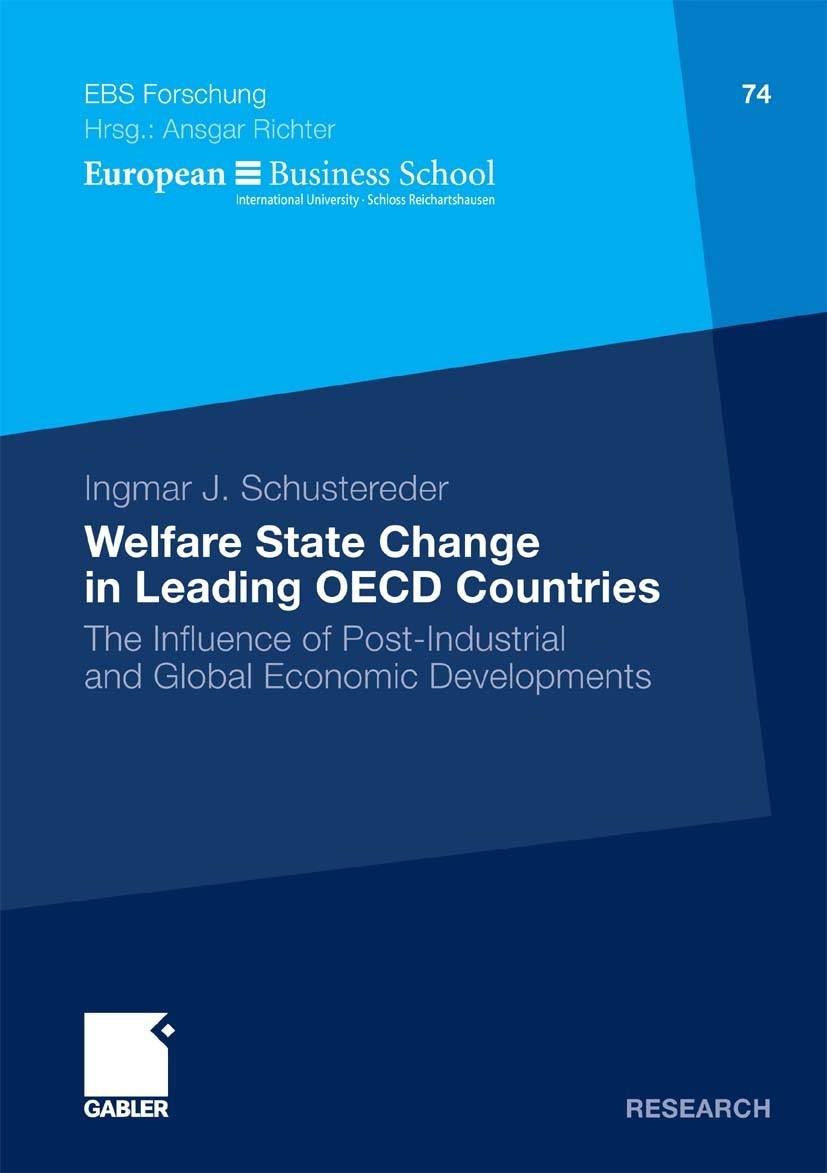| 书目名称 | Welfare State Change in Leading OECD Countries | | 副标题 | The Influence of Pos | | 编辑 | Ingmar J. Schustereder | | 视频video | http://file.papertrans.cn/1027/1026863/1026863.mp4 | | 丛书名称 | ebs-Forschung, Schriftenreihe der EUROPEAN BUSINESS SCHOOL Schloß Reichartshausen | | 图书封面 |  | | 描述 | 1. 1 Research Scope Ever since the introduction of social insurance legislation beginning in the last th decades of the 19 century, social scientists have been interested in analyzing the causal forces behind the development of the modern welfare state. Precisely, for most of the period the academic debate has hereby mainly centered on the following qu- tions: Why was the welfare state founded in the first place? And which factors have 1 contributed to its rapid expansion in the aftermath of World War Two (WWII)? With the advanced capitalist welfare states beginning to face increasing ch- lenges from the mid-1970s onwards, academic research has recently shifted from providing explanations on the rise of the welfare state to understanding processes of welfare state adaptation. In general, advanced capitalist welfare states confront today two types of challenges: on the one hand, pressures from post-industrial devel- ments, and on the other hand, pressures from global economic forces (see Buti, Franco, and Pench, 1998, pp. 17-26). Following Pierson (2001a), the most severe “post-industrial pressures” (p. 80) involve ongoing processes of deindustrialization, population ageing, changin | | 出版日期 | Book 2010 | | 关键词 | Globalisierung; Social Policy Reform; Sozialstaat; Sozialstaatlichkeit; Sozialsysteme; Welfare Capitalism | | 版次 | 1 | | doi | https://doi.org/10.1007/978-3-8349-8622-1 | | isbn_softcover | 978-3-8349-1901-4 | | isbn_ebook | 978-3-8349-8622-1 | | copyright | Gabler Verlag | Springer Fachmedien Wiesbaden GmbH, Wiesbaden 2010 |
The information of publication is updating

|
|
 |Archiver|手机版|小黑屋|
派博传思国际
( 京公网安备110108008328)
GMT+8, 2026-1-23 01:08
|Archiver|手机版|小黑屋|
派博传思国际
( 京公网安备110108008328)
GMT+8, 2026-1-23 01:08


